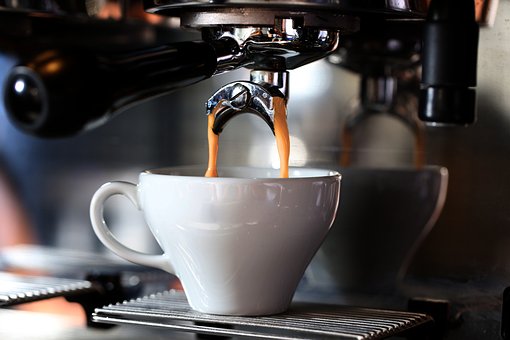- Finely ground coffee beans brew a weaker espresso, due to uneven extraction in the coffee bed.
- Researchers from the University of Huddersfield used a mathematical model to explore the role of uneven coffee extraction. They found that it leads to a positive feedback loop resulting in more disparities in flow and extraction.
- Understanding the origin of uneven extraction and avoiding or preventing it could result in better-tasting coffee, greater efficiency, and substantial financial savings.
Espresso coffee, aka nectar of the gods, is made by grinding roasted coffee beans into grains, then forcing hot water through a bed of coffee grains at high pressure to produce espresso. The soluble content of the coffee grains dissolves into the water, resulting in extraction.
In 2020, researchers found that, counterintuitively, more finely ground coffee beans produce weaker espresso. This could be due to regions in the coffee bed where less or no coffee is extracted. Uneven extraction becomes more pronounced when coffee is ground more finely.
In a new paper, University of Huddersfield researchers investigated the role of uneven coffee extraction using a mathematical model. The coffee was divided into two regions to determine whether uneven flow creates weaker espresso. One region had more tightly packed coffee than the other, causing a discrepancy in flow resistance due to water flowing more quickly through more tightly packed grains. Coffee extraction further reduced the flow resistance, as coffee grains lose about 20% to 25% of their mass during the process.
“Our model shows that flow and extraction widened the initial disparity in flow between the two regions due to a positive feedback loop, in which more flow leads to more extraction, which in turn reduces resistance and leads to more flow,” said co-author William Lee.
“This effect appears to always be active, and it isn’t until one of the regions has all of its soluble coffee extracted that we see the experimentally observed decrease in extraction with decreasing grind size.”
The researchers say they were surprised to find that the model always predicts uneven flow across different parts of the coffee bed.
“The taste of the coffee depends on the level of extraction,” said Lee. “Too little extraction and the coffee tastes underdeveloped, or what I call smoky water. Too much extraction and the coffee tastes very bitter. These findings suggest that even if the overall extraction seems correct, it could be due to a mixture of underdeveloped and bitter coffee.”
Understanding the origin of uneven extraction and avoiding or preventing it could result in better brews and substantial financial savings by using coffee more efficiently.
“Our next step is to make the model more realistic to see if we can obtain more detailed insights into this confusing phenomenon,” said Lee. “Once this is achieved, we can start to think about whether it is possible to make changes to the way espresso coffee is brewed to reduce the amount of uneven extraction.”
The article “Uneven extraction in coffee brewing” is authored by W.T. Lee, A. Smith, and A. Arshad. It will appear in Physics of Fluids on May 9, 2023 (DOI: 10.1063/5.0138998). After that date, it can be accessed at https://doi.org/10.1063/5.0138998.
FAQ
Q: Why does finely ground coffee produce weaker espresso?
A: This is because uneven extraction may occur in the coffee bed, resulting in less or no coffee being extracted from some regions. This phenomenon becomes more pronounced when coffee is ground more finely.
Q: What did the researchers from the University of Huddersfield discover about uneven coffee extraction?
A: They used a mathematical model to investigate the role of uneven coffee extraction and found that it leads to wider disparities in flow and extraction, due to a positive feedback loop where more flow leads to more extraction, which then reduces resistance and leads to more flow.
Q: How does uneven extraction affect the taste of coffee?
A: The taste of coffee depends on the level of extraction. Too little extraction leads to coffee that tastes underdeveloped, while too much extraction results in a very bitter taste. Even if the overall extraction seems correct, it could be due to a mixture of underdeveloped and bitter coffee.
Q: Why is it important to understand uneven extraction and how to prevent it?
A: Understanding and avoiding uneven extraction can result in better-tasting coffee, greater efficiency, and substantial financial savings by using coffee more efficiently. By making changes to the way espresso coffee is brewed, it may be possible to reduce the amount of uneven extraction and produce a consistently good cup of coffee.

